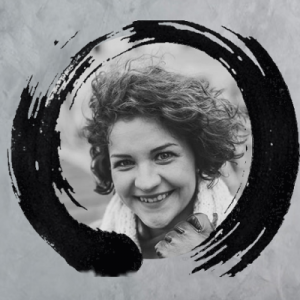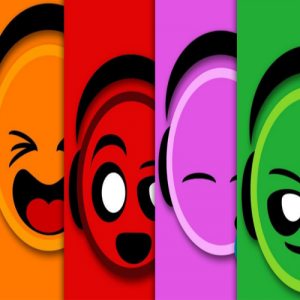Recently, I have been spending more time analysing Salsa than I have spent dancing. My interests range from music, politics and to the psychological aspects behind Salsa dancing. I would like to say that I have become more mentally involved and would like to share some of my findings with you.
This article shares with you my thoughts on performance troupes, their place in the Salsa journey, the common perceptions, the benefits and more interestingly the drawbacks.
DISCLAIMER: This article is written based on my personal observations and various conversations.
SALSA DANCE JOURNEY
For the vast majority of Salsa dancers, our journey starts in either a class or a club. If your first experience is positive then you start your journey and try to improve your dancing (I will go into motivations in a later article).
After sampling available classes there seems to be gravitation to the belief that performance courses are the way to improve your dancing i.e. the next logical step and in London, it seems to be around the 2-year mark. We currently have dozens of student groups (and like most mature scenes) student groups massively outnumber professional groups.
So what are the benefits and drawbacks?
BENEFITS
There are plenty of benefits to participating in a performance course. I will go through some of the benefits that I have seen but this is by no means a complete list:
Community – The number one benefit is the sense of community that is built around performance courses. When you sign up you are put in a group of like-minded individuals that want to improve just as much as you do. In a Salsa scene where we are too busy dancing and the most you ever say to someone is “would you like to dance?” this is a great opportunity to really get to know people. As you say experiences bring people together and pulling through performance is a great way to do this. I met my TNT Dance co-founder at a student group and we are still best friends and working together 5 years on.
Cosmetics – For the majority, a performance course is the first step into the world of Salsa cosmetics. As Salsa dancers we are preoccupied with the task of leading and following, making sure that our partner has a great time and not running into the dancers next to us. In a performance course, you are suddenly put in front of a mirror and assessed on how you look. This is a massive shock to the majority of people and I have yet to find a single person who liked the first video they saw of themselves dancing. This shock provides an appreciation of other important aspects of your Salsa: posture, alignment and consistency of movement.
Exactness – Being on stage and performing with 6-10 couples puts into light something that is not a requirement of social dancing, exactness. When social dancing you can get away with slack timing, misled moves and mistakes. The randomness of social dancing and the lack of pressure to be perfect is part of the appeal. However, this is not an option in a performance group where synchronicity is one of the main objectives. Suddenly you have to be exact in your movements i.e. leading a move on beat 1, which means leading on beat 1, not 1 and a quarter, not slightly before, but exact. This again provides awareness of weaknesses and highlights areas of improvement.
Style Absorption – When you take a class with an instructor you may be able to learn their moves, get their footwork and get hints of their style, but to truly get a taste you have to walk in someone else’s shoes and performance courses are perfect for this. You will spend the duration of the course working on the perfection of moves that your instructor will do i.e. styling elements and generally be able to understand more about why they dance the way that they do.
DRAWBACKS
There is nothing in life without its drawbacks, and personally speaking, understanding these drawbacks will help enable you to avoid them and get the most from your experience.
Lack of Social Dance – The majority of people who attend performance courses tend to take a break from social dancing. There are only so many days available in a week and something has to give. But in saying that, to be a good social dancer you need to have both good technique (partner work, shines, body movement etc) and dance floor adaptability (applying what you know under not-so-perfect conditions). The majority of performance group students take an initial dive in their social dancing skills.
Social Isolation – Whereas you have a chance to focus on a smaller group of friends this could also be a massive drawback in my mind. I have seen many cliques form because of student groups which is a very closing experience in the Salsa scene. You might call this your new set of friends but I have personally observed, to my own shock, members of a performance course at a congress, in a single corner only dancing with each other. My personal opinion is that as a student of Salsa you should go to as many teachers as you can and continue your learning; cliqueing is very limiting.
Limiting Vocabulary – When you join a performance course you focus on how an instructor will express music, how they will interpret and as such provides a nice reference for building your personal style. They will teach the same 3-minute routine for a long period of time and as such your primary focus will be on these. When I was in a performance course I noticed at one point that my large turn pattern vocabulary (which I was proud of) was replaced by several moves in the choreography. You play as you practise and the moves and shines in my performance course were at the forefront of my mind when social dancing.
End of Class – I have seen something very interesting. When people finish with performance courses they generally do not go back to regular classes afterwards. It is almost as if classes evolve into performance courses and there is no need to go back. This focus on performance courses as a form of improvement has removed the drive and push that I once observed in regular classes. The variety of regular class teachers massively outnumber performance courses and therefore as a student, you will remove a large source of education.
FINAL THOUGHTS
I have heard many positive and negative experiences from performance courses, however, it is rare to do with the instructors involved but the expectations of involvement and end product. Hopefully, this article will give you some insight as to what you can expect but before signing up for one please talk to the organisers to know (in detail) what you are signing up for.
I find that performance courses, in general, have benefits and can provide a life-enhancing experience. But with most things, it would be nice to know if this is the right thing for you and the possible drawbacks.




